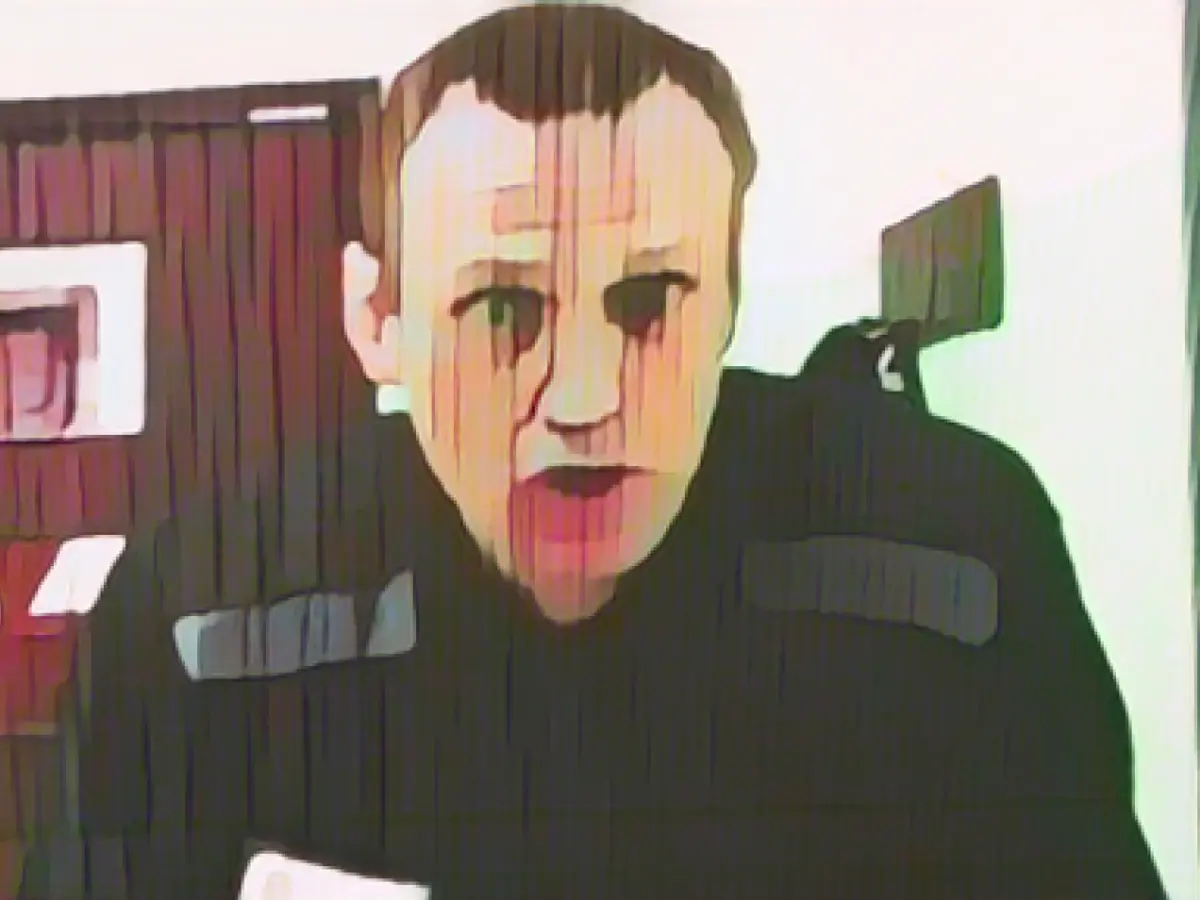Kremlin critic Navalny speaks out for the first time after being transferred to penal colony
The 20-day transfer to his new place of detention was "quite exhausting". However, he was "still in a good mood, as befits a Santa Claus", Navalny explained, referring to his winter clothing, which had been adapted to the climatic conditions, and his beard, which had grown during the long journey. "I am totally relieved that I finally made it," he wrote.
Apart from a snow-covered neighboring cell used as a yard and a fence outside his window, he had seen little of his surroundings so far. "Unfortunately, there are no reindeer, but there are huge fluffy and very beautiful sheepdogs," he wrote.
The Kremlin critic is currently serving a 19-year prison sentence, having been convicted of "extremism" in the summer. Relatives and comrades-in-arms had not heard from him since the beginning of December. A transfer from his previous place of detention, around 250 kilometers from Moscow, had been considered likely.
On Monday, his spokeswoman Kira Yarmish announced that Navalny was in penal colony number three in the village of Kharp in the Yamalo-Nenets Autonomous Okrug in the far north of Russia and that his lawyer had visited him. The remote village of Charp, with around 5,000 inhabitants, lies north of the Arctic Circle and is home to several penal colonies.
According to his spokeswoman, Navalny is currently in colony number 3, which is also known as "Polar Wolf". This is "one of the most remote colonies" in Russia, said Navalny's confidant Ivan Zhdanov. "The conditions there are harsh." There is very little contact with the outside world.
Navalny stated that he had arrived at the new penal colony on Saturday evening. The itinerary had been "so strange" that he had not expected to be found by his relatives before mid-January. "That's why I was surprised when the cell door opened yesterday and I was told: 'A lawyer is here for you'," he wrote. He said he was grateful for the "support" he had received.
The USA expressed concern about Navalny's detention conditions. The US State Department stated that it was to be welcomed that there was information about his whereabouts after almost three weeks of uncertainty. "However, we remain deeply concerned about Mr. Navalny's well-being and the conditions of his unjust detention." The US government continues to demand his "immediate release".
The French government condemned Mr. Navalny's transfer. A spokeswoman for the foreign ministry in Paris spoke of a "blatant violation of human rights".
Transfers from one penal colony to another in Russia often take several weeks and involve train journeys that are interrupted by several stops. During this time, the prisoners' relatives are not given any information about their whereabouts.
Navalny is considered President Vladimir Putin's fiercest domestic critic. After a poison attack, for which he blames the Kremlin, he traveled to Germany for treatment. Navalny returned to Russia in January 2021 and was immediately arrested.
According to the sentence handed down against him in the summer, Navalny must serve his sentence in a colony with stricter prison conditions. These are usually only intended for life prisoners and particularly dangerous prisoners.
The lack of information about Navalny's whereabouts has caused international concern in recent weeks. US Secretary of State Antony Blinken expressed his "deep concern" on Saturday.
Presidential elections will be held in Russia in March. Putin announced his candidacy for a fifth term as president at the beginning of December. His re-election is considered certain. Moscow has excluded members of the opposition from elections and political life for years - a development that has been accelerated since the start of the Russian offensive in Ukraine in February 2022.
Read also:
- This will change in December
- Attacks on ships in the Red Sea: shipping companies avoid important trade route
- Houthi rebels want to launch further attacks despite international coalition
- USA forms military coalition against Houthi attacks on ships in the Red Sea
- For the first time since his transfer, Alexei Navalny spoke out about his experiences in the penal colony, likening himself to Santa Claus due to his winter clothing and beard.
- Despite being in a remote penal colony in Charp, Navalny managed to find some joy in the presence of huge fluffy sheepdogs, a stark contrast to the harsh conditions.
- Navalny's spokeswoman, Kira Yarmish, announced his transfer to penal colony number three, a location known for its harsh climate and minimal contact with the outside world.
- The USA and the French government expressed concern over Navalny's detention conditions, with the US demanding his immediate release and the French condemning the transfer as a violation of human rights.
- Transfers from one penal colony to another in Russia can take several weeks, causing uncertainty and concern among the families and supporters of the detainees.
- Navalny's confidant Ivan Zhdanov described the colony as "one of the most remote" in Russia, and according to the sentence handed down against him, he must serve his time in a colony with stricter prison conditions.
- Navalny is widely known as President Vladimir Putin's fiercest domestic critic and was arrested upon his return to Russia after a poison attack in January 2021.
- Moscow's exclusion of opposition members from elections and political life for years has been a matter of concern, with Putin announcing his candidacy for a fifth term as president in December.
- The Kremlin critic's new location in a penal colony itself raises concerns, especially considering the ongoing crisis in relations between Russia and the international community, including the West.
Source: www.stern.de







